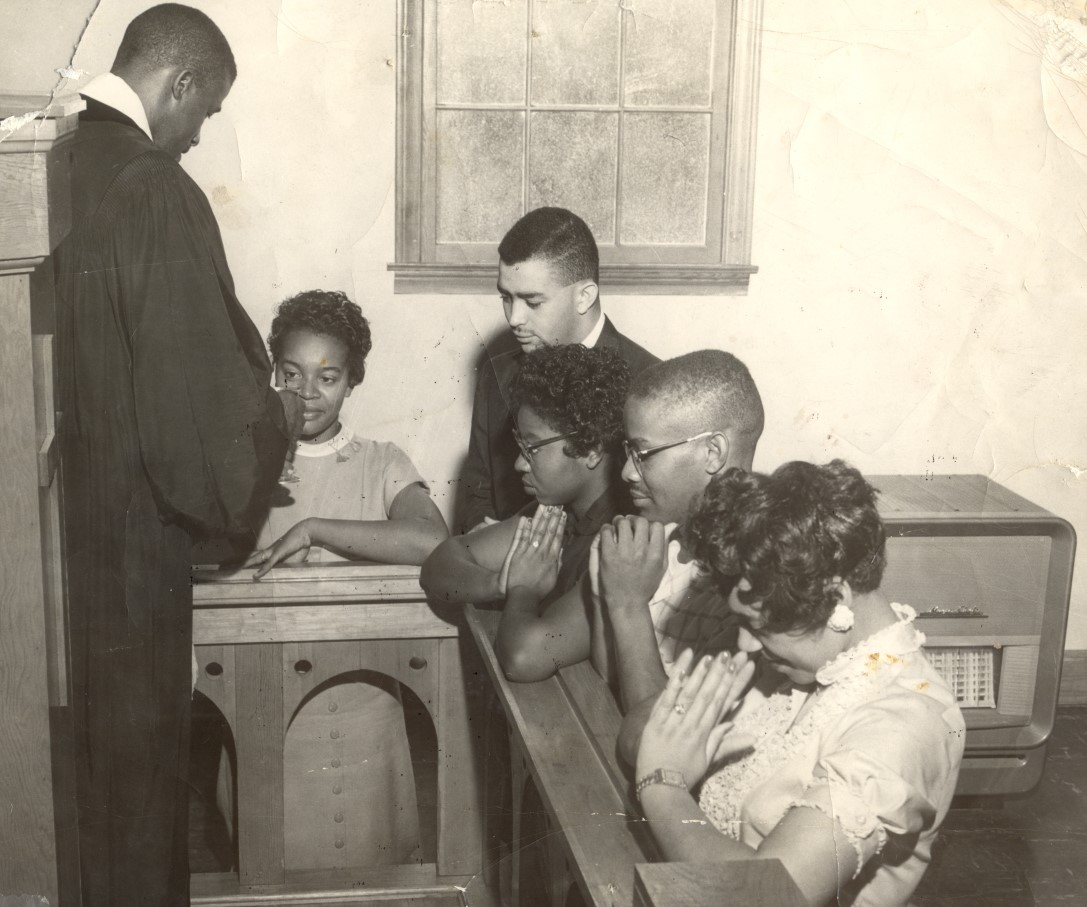The Royal Ice Cream Sit-In was a nonviolent protest that occurred on June 23, 1957, in Durham, North Carolina. The sit-in was led by Douglas E. Moore and began when he and seven other protestors entered the Royal Ice Cream Parlor and sat in the whites-only section. The sit-in helped influence future protests like the Greensboro Sit-Ins three years later.
On June 23, 1957, Reverend Douglas Moore and seven others came to the racially segregated Royal Ice Cream parlor from a Sunday session at Ashbury Temple United Methodist Church, where Moore was pastor. They entered through the back of the parlor but purposely sat in the white section. The group asked to be served ice cream but were refused. Busboy David Champion asked the group to move to the colored section, a request that was followed up by the parlor’s owner, Louis Coletta. When they refused, Coletta called the police. Before they arrived, one member left the parlor, but the others, Elizabeth Clyburn, Vivian Jones, Virginia Williams, Claude Glenn, Jessie W. Gray, Melvin Willis, and Rev. Moore, who collectively became known as the “Royal Seven” were arrested by Durham police.
The protesters, who were represented by lawyer William A. (Billy) Marsh Jr, a Durham Civil Rights attorney, were convicted of trespassing and fined ten dollars each plus court costs. They then appealed their case in the Durham County Superior Court, where on July 16, 1957, an all-white jury upheld the guilty verdict, and the protestors were fined an additional twenty-five dollars each.
On January 10, 1958, the case was moved to the North Carolina Supreme Court, which also upheld the charges against them. Moore and the protestors attempted to take the case to the United States Supreme Court, but it refused to hear the case on the grounds that the protestors’ rights had not actually been violated.
On July 15, 1958, the protestors were fined a total of $433.25. Despite the failure of the Royal Ice Cream Parlor Sit-Ins, the sit-ins led to the first court case that tested the legality of North Carolina’s segregation laws. The sit-in also paved the way for the much more successful Greensboro Sit-Ins about three years later.

